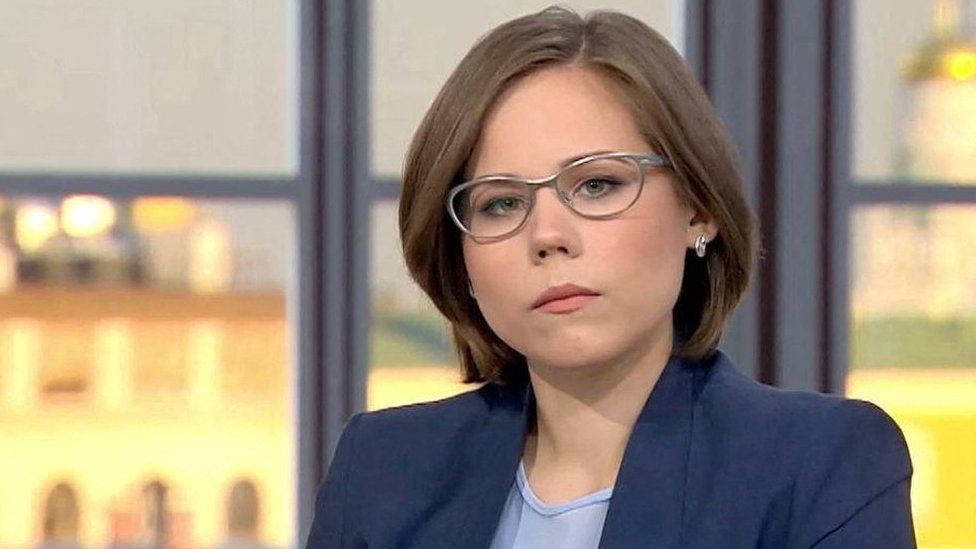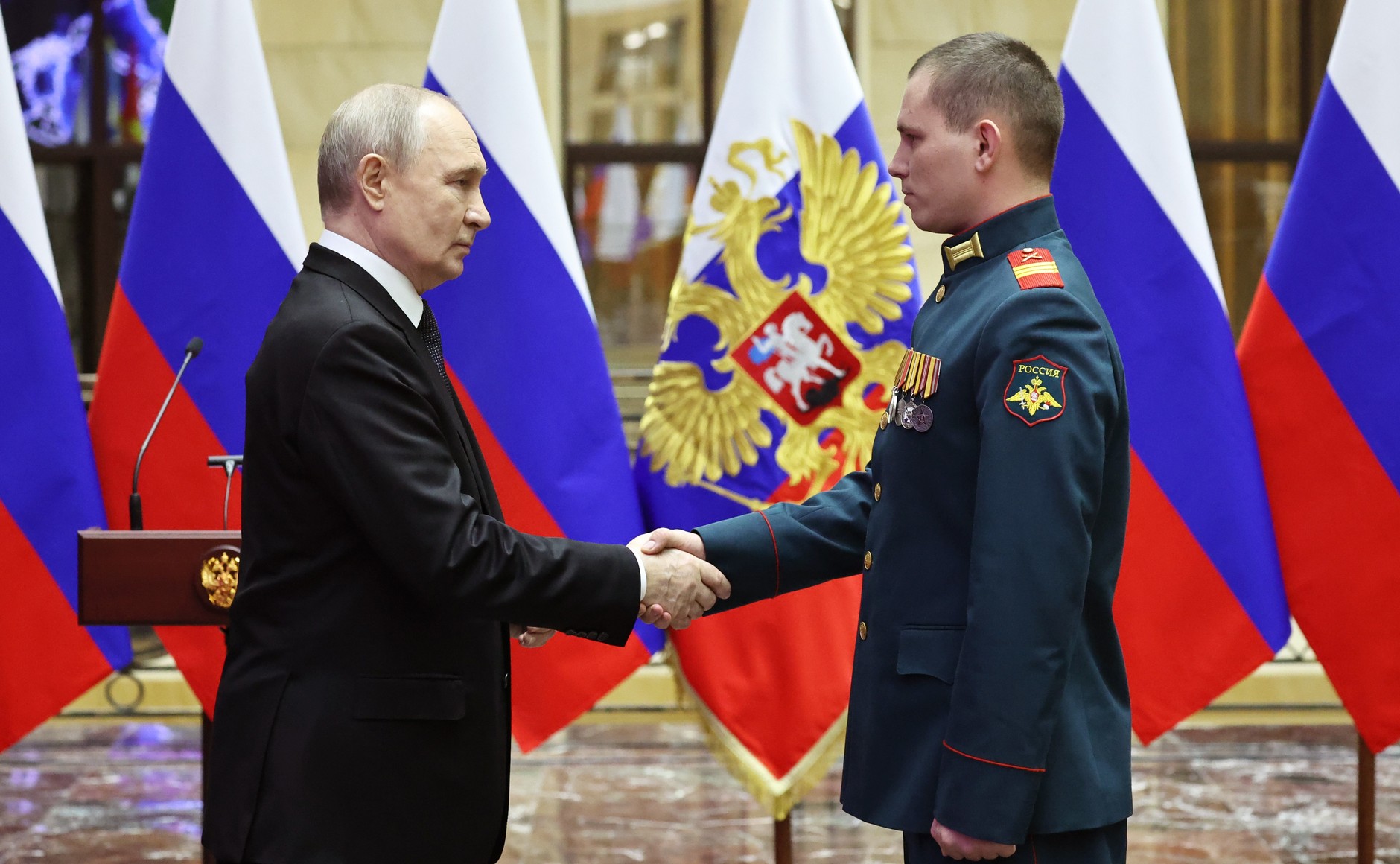
With the Killing of Darya Dugina, Putin Finds Critical Corollaries to Stalin
With the Killing of Darya Dugina, Putin Finds Critical Corollaries to Stalin
The murder of Darya Dugina—the daughter of Aleksandr Dugin, who many view as the instigator for some of Russian President Vladimir Putin’s more aggressive and expansionist ideas—in Moscow on August 20 has sparked three sets of questions: Was her father the real target? Who was responsible for blowing up her car? And how will the Kremlin, or perhaps others, use this murder to further their own goals? Answers to the first two questions are still very much open despite one claim of responsibility, numerous suggestions that others were involved and even a Russian Federal Security Service (FSB) report that it had arrested a Ukrainian woman and charged her with carrying out the attack. (For two useful surveys by thoughtful Russian observers, see Masha Gessen’s discussion, The New Yorker, August 26; and Victor Davidoff’s analysis, The Moscow Times, August 23.)
The final answer to these two questions may in fact never be known with any level of certainty. To begin with, so many possible assassins have been named and so much evidence has already been sequestered by the Russian authorities that getting to the bottom of this particular case may prove just as difficult as has been reaching conclusive conclusions on the 1934 murder of Sergey Kirov—at the time, the Leningrad party chief (Ria.ru, Gazeta.ru, September 5). Many assume that Soviet leader Joseph Stalin was behind Kirov’s murder because of how Stalin exploited the murder; but even that preliminary conclusion remains in dispute. (On this longstanding discussion, see Amy Knight’s presentation, Wilson Center, accessed September 6; and the late Robert Conquest’s earlier book, Stalin and the Kirov Murder, New York, 1989.)
But the answer to the third question—how will the Kremlin, or others, make use of Dugina’s murder—while at least equally difficult to answer, almost certainly will prove the more consequential. Gessen, Davidoff and independent Russian commentator Yulia Latynina see Dugina’s killing almost certainly heralding an upsurge in repression and even terror within the Russian Federation. All three rely on what they say are the obvious parallels between this murder and the Kirov assassination. Gessen writes, “We know now that the 20th-century events that heralded unprecedented terror”—including the murder of Kirov—“were in fact carried out by rogue actors,” and “they set in motion the totalitarian machine.” Davidoff says that Putin will now do what Stalin “always did” and use this event to blame others and distract attention from his failures at home and in Ukraine. In Davidoff’s words, “No matter who is responsible for this tragedy, it will be used to intensify repressions inside the country.” Latynina makes the same argument in an article titled “The New Kirov Murder” (Novayagazeta.eu, August 21).
Latynina makes an additional suggestion, however, one that also has parallels with the way in which some read the Kirov murder and its consequences. While most analysts have tended to assume that if Stalin wanted to use Kirov’s murder for his own purposes and if Putin wants to do the same thing now, then it is most likely that the Kremlin leaders themselves would have orchestrated the killings.
Yet, another possibility has been posited—one that Gessen hints at but Latynina makes explicit. In her telling, Dugina’s murder may have been the work of a group opposed to Putin who seek an even more aggressive war in Ukraine and even more repression at home “with or without Putin” remaining at the helm. Such people, Latynina suggests, may be trying to force Putin’s hand by staging a murder in Moscow to push him into declaring martial law at home and a general mobilization for an expanded war in Ukraine. She points to comments from the Nezygar telegram channel to support that contention (T.me/Russica2, August 21).
Of course, these two theories are not mutually exclusive. It is possible that Putin was behind the murder. But it is also possible that he was not and will see it both as a threat to himself and as an opportunity not only to promote his own goals but also to settle scores with those who may have organized the killing. As Latynina acknowledges, she “does not know who killed Dugin’s daughter, but fears that, after this murder, total terror will follow, just as was the case after Fanny Kaplan’s shooting of Lenin [in 1918 when the first Red Terror was declared] or the Kirov murder,” which many see as opening the way to Stalin’s Great Terror of 1937.
At present, of course, it is impossible to say which of these possibilities is the more likely or whether in fact either of them will occur. But the discussion following Darya Dugina’s murder has already had one positive consequence: It has forced ever more analysts to conclude that Putin’s aggression in Ukraine and his repression at home are intimately intertwined and that, as things become worse for Putin in Ukraine, life is likely to worsen for Russian residents at home (see EDM, July 23). Indeed, this discussion has prompted analysts to focus again on the fact that, even in authoritarian and totalitarian states, many happenings are not as carefully planned and orchestrated as commentators have been inclined to think and that random events, even as minor as the killing of the daughter of a relatively minor ideologist, may cast a shadow far larger and darker than they could have imagined.
In the Soviet era, and increasingly during Putin’s time, many have been inclined to the view that Moscow controls everything that happens in Russia as the result of the dictator’s decisions alone, a point of view that was encouraged by Arthur Koestler’s novel, Darkness at Noon (London, 1940), which posited a more complete vision of totalitarianism. And they are far less willing to accept the accidental quality of many events and their contingent nature, an alternative view that was promoted by Victor Serge in his novel The Case of Comrade Tulayev (London, 1951). Perhaps the most valuable lesson from the Dugina case may be a recognition that Serge captured the truth of the situation more fully than Koestler in that Russia’s future is not Putin’s alone to make.


